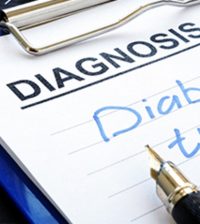- More Data Suggests ‘Ultraprocessed’ Foods Can Shorten Your Life
- Colon Cancer Cases Rising Sharply Among Children, Teens
- Eating Disorders Common in People With Type 1 Diabetes
- Can Zinc Really Shorten a Cold?
- Neuropathy Nerve Damage Often Goes Undiagnosed
- Tobacco Plus Weed in Pregnancy Could Be Lethal Combo for Baby
- Spinal Cord ‘Wraparound’ Device Could Help Treat Paralysis
- How Long Does Marijuana THC Linger in Breast Milk?
- Stomach-Zapping Procedure Lowers Appetite to Help With Weight Loss
- Dogs Brought to U.S. Must Be Microchipped, Older Than 6 Months: CDC
Many Bipolar Patients Take Multiple Psychiatric Meds


Many people with bipolar disorder take multiple medications to manage the symptoms, which can be extremely challenging, a new study reveals.
Researchers looked at 230 patients with bipolar disorder who were admitted to a Rhode Island psychiatric hospital in 2010. They found that more than half of patients were taking three or more psychiatric medications and 36 percent were taking four or more. About 20 percent weren’t taking any psychiatric medications.
Women were more likely than men to be taking four or more psychiatric drugs, a situation called “complex polypharmacy.” Women accounted for 58 percent of the patients in the study but for 68 percent of those with complex polypharmacy.
In addition, women were more likely to be taking antidepressants, anti-anxiety drugs, and stimulants, all of which are controversial treatments for bipolar disorder, said study lead author Lauren Weinstock, an assistant professor of psychiatry and human behavior at the Alpert Medical School of Brown University.
Including prescriptions for other health problems, the patients were taking an average of six different drugs, according to the study published online Feb. 1 in the journal Psychiatry Research.
Having so many medications can lead to unknown interactions, make it difficult for patients to take them as prescribed, and lead to high costs for patients and the health care system, the researchers noted.
“The high rate of complex polypharmacy reflects the enormous challenge of symptom management that we currently face for bipolar disorder,” Weinstock said in a university news release.
“Without many treatment alternatives, this is where we are as a field. It is important for us to advance science and treatment of bipolar disorder so that this medication burden can be minimized for our patients,” she said.
More information
The U.S. National Institute of Mental Health has more about bipolar disorder.
Source: HealthDay
Copyright © 2024 HealthDay. All rights reserved.










